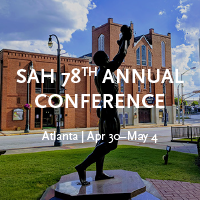Sustainable Development Goals (SDGs) are a set of aspirational development objectives that the United Nations General Assembly (UNGA) formulated for adoption in 2015. Globally, numerous countries have voluntarily committed to compliance with SDGs by 2030. The foundational principles of SDGs were derived from the discourses that shaped the Millennium Development Goals (MDGs), which dominated the developmental agenda from 2000 to 2025.. In the transition from MDGs to SDGs, development remains the continuing arena of action. While the MDGs were focused on alleviation of poverty, improvement of health outcomes, and education the SDGs have a greater emphasis on sustainable development, climate change, energy, and the environment. The universalizing tendencies of the seventeen SGDs and their underlying theoretical tenets have unleashed uneasy questions pertaining to the complexity of their implementation and measurable outcomes, at urban, local, regional, national, continental, and global scales.
The scholarship on cities of the global South – Southern Urbanism – has constantly questioned the universal aspirations of the projects of modernity and development, which have multiple definitions and may or may not be mutually exclusive. This conference calls for papers that examine MDGs and SDGs from the perspective of Southern Urbanism.
Topics:
Problems and solutions of assessment and implementation of SDGs
From the disciplines of the built environment – architecture, building construction, landscape architecture, historic preservation, civil and environmental engineering – the qualitative and quantitative assessment of SDGs is a global challenge, given the cultural, economic, and political disparities vis-à-vis societal structures. The methods of monitoring at different scales – countrywide, regional, state level, district or country level, urban, and local – have different governmental, structural, cultural, social, and organizational modalities, which are subject to voluntary local reviews.
On the one hand, it is aspirational to have global outcomes related to the environment, climate, and health, on the other hand, it is a daunting and nearly impossible task to have these universal standards for humanity. This is due to the heterogeneous physical and spatial attributes of northern and southern urbanisms owing to historical, social, and cultural inequities. Therefore, it is vital to localize SDGs to create benchmarks and responses that are appropriate to the context and scale, which ranges from the neighborhood level to the regional level.
Carbon in the Built Environment
In the pursuit of SDGs, carbon is a critical element at all scales. As we develop technologies like carbon capture, sequestration, and utilization – the question arises how can we convert carbon emissions on into construction materials at a scale and cost that is viable for Sothern urbanism? We explore the challenges and solutions of the reduction of the carbon footprints of buildings and cities of the South. The conference seeks to explore the challenges and solutions for – one, the reduction of carbon footprints of buildings and cities of the South; two, the role of the circular economy in the calculus of carbon in the built environment; and three, conversion of carbon emissions into construction materials.
The third area of inquiry explores the role of carbon as a financial resource. We invite papers that foster new imaginations around carbon, not merely as a challenge to mitigate but also as a resource to be harnessed. Through this area, we solicit examples of the successful realization of carbon credits as a financial mechanism to support sustainable building and urban projects. It is imminent for cities to leverage carbon markets to fund green infrastructure, energy-efficient buildings, and therefore, SDGs. The conference intends to examine policies and the roles of actors in the areas of – one, carbon neutral or carbon negative technologies; and two, implementation of carbon management at urban level through incentives and building codes.
More information: https://krvia.ac.in/krvia-uf-conference/


